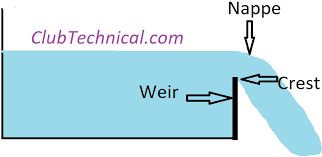NOISE CONTROL IN BUILDINGS
Nowadays due to increased urbanization and industrialization, there is a tremendous increase in noise pollution. Noise is an unwanted sound. It creates a huge discomfort to the occupants in the building. There are many structures like schools, corporate offices, and residential buildings that are constructed nearby highways faces a huge problem of noise pollution due to heavy traffic.
So it is necessary that structures should be constructed in such a way that they should resist noise and keep the internal environment soundproof. It is today’s need that we should design and planned structures for better Acoustic control.
Acoustic of Buildings
Acoustic control of Buildings is the science of controlling the unwanted noise in the living environment. It is a minimization of sound transmission from one place to another place and the control of the characteristics of sound. It is an implementation of techniques for making structure soundproof structures. This is an economical method that saves the cost of installation of acoustic Windows and glass.
Construction Techniques for Noise Control in Buildings
1. Construction of walls
Walls are the important structural components of the Buildings which protect the internal environment from the external noise.
2. Use of Cavity walls in the partition
The use of cavity walls in partition proves to be very efficient for sound resistance in the Buildings.
The noise resistance of the material depends upon the mass of that material. The more the mass of material more will be noise resistance. The concrete walls provide more sound insulation as compared to wooden walls because of its higher mass.
4. Use of Acoustic blankets in airspace
This is also known as isolation blankets which can increase sound attenuation when placed in the airspace.
They can attenuate noise up to 10 dB
5. Use of different panels
The panels used should be of different materials and thicknesses. This will improve the sound insulation property of the walls.
6. Construction of windows
Windows are one of the major sources from where the sound enters into the structures. So that is necessary to take into consideration while acoustic planning of the structures.
7. Reduction in size of windows
It is a very useful method to resist the sound enters into the structures. This is an economical method that saves the cost of installation of acoustic Windows and glass.
8. Increasing thickness of the glass
The noise can be resisted by increasing the thickness of the glass. It is also necessary that proper sealing should be done in order to increase the effectiveness of soundproofing.
9. Installation of double glazed
It is an effective method that increases airspace width, glass thickness which helps in noise resistance.




Comments
Post a Comment